For New York renters, the security deposit, a fee dedicated to cover any damage done to a unit, has long been a key albeit expensive part of the process. A series of rent laws passed in 2019 limited the amount one may charge for a security deposit to one month’s rent, but that can nevertheless be a daunting sum when rents throughout New York City are at an all-time high. It does not help matters that a recent study found that New York City rents rose 8.6% last year while wage growth only rose 1.2% (h/t The Real Deal), nor that the supply crunch shows no sign of abating.
But while New York's housing shortage is well known, Rhino chairman and co-founder Ankur Jain told The New York Times that “security deposits have been vastly overlooked for the past few decades and...have become a much bigger barrier than they used to be for renters.” His company is among a new class of alternatives to security deposits that may make this practice as much a relic of the city’s real estate past as bathtubs in the kitchen.
In this article:
What are alternatives to security deposits?
A number of start-ups has emerged to offer alternatives to security deposits, but the best-known is perhaps Rhino. The company was created in 2017 in response to the housing affordability crisis. Instead of paying one lump sum as a security deposit, renters pay a small monthly fee to cover an insurance policy for their landlords. This serves the same function as a security deposit and, as of October 2019, has saved New York City renters over $60 million.In addition to Rhino, other popular companies include Insurent and The Guarantors. Obligo, which offers the choice of paying a security deposit or a monthly nonrefundable fee, was inspired by the practice of swiping a credit card for preauthorization at hotels. And financial services firm Qira, whose clients range from Section 8 properties to large multifamily owners, was named a preferred security deposit alternative by the City of New York in February 2022.
Why should renters use them?
For most renters, the possibility of smaller upfront payments and more cash in hand is a no-brainer. But there are further merits to a depositless model. The practice helps establish good renter’s credit, which is especially good for first-time renters. Moreover, when a tenant renews a lease, the price of their monthly payment goes down.Renters should be advised, though, that this is not renters insurance. The policy provided through this service covers the apartment alone, and a separate policy is required to cover their personal belongings. They should also note that if the damage to an apartment exceeds the amount they have paid, they are still responsible for covering it.
Why should owners use them?
The advantages of Rhino and other security deposit alternatives extend to landlords as well as renters. Without a security deposit, the lower upfront costs allows for a wider pool of applicants; from there, it can speed up the application process and fill apartments faster.Brodsky, TFC, and UDR are among the major New York City landlords that have embraced Rhino and other security deposit alternatives, but smaller property owners may appreciate the fact that these companies cover the support, claims processing, and other administrative hassles of security deposits. Finally, this may come to make better business sense - as time passes, renters may come to insist on using depositless models and opt not to rent in a building that doesn’t offer them.
Security deposit alternatives are growing in popularity among renters and owners alike, but it is always smart to confirm that a building accepts them.
Newly-launched no fee rental buildings around NYC
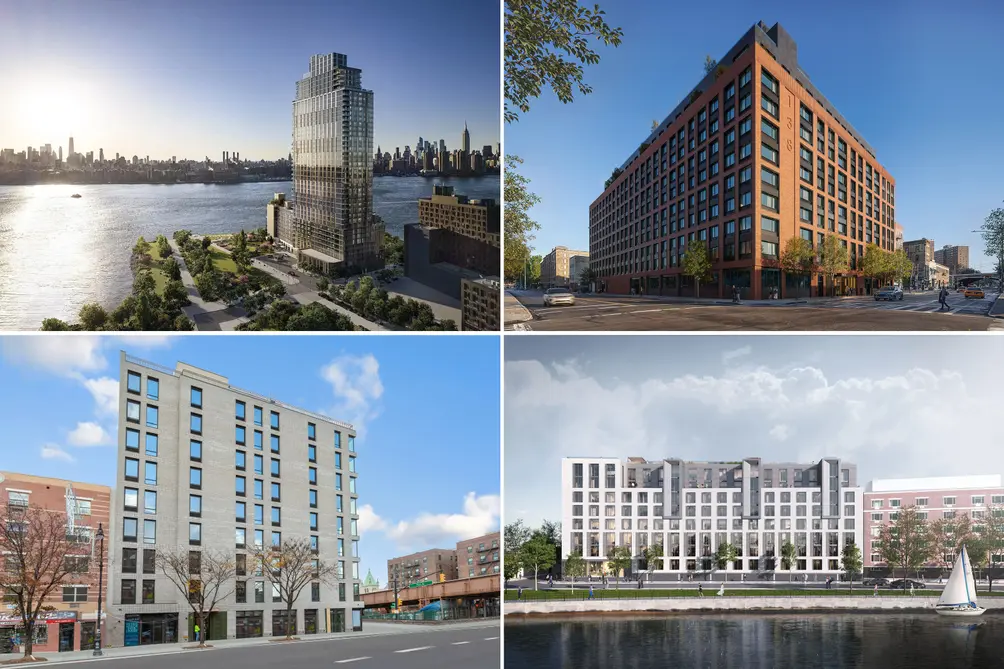
280 West 24th Street
9 availabilities from $4,950
9 availabilities from $4,950
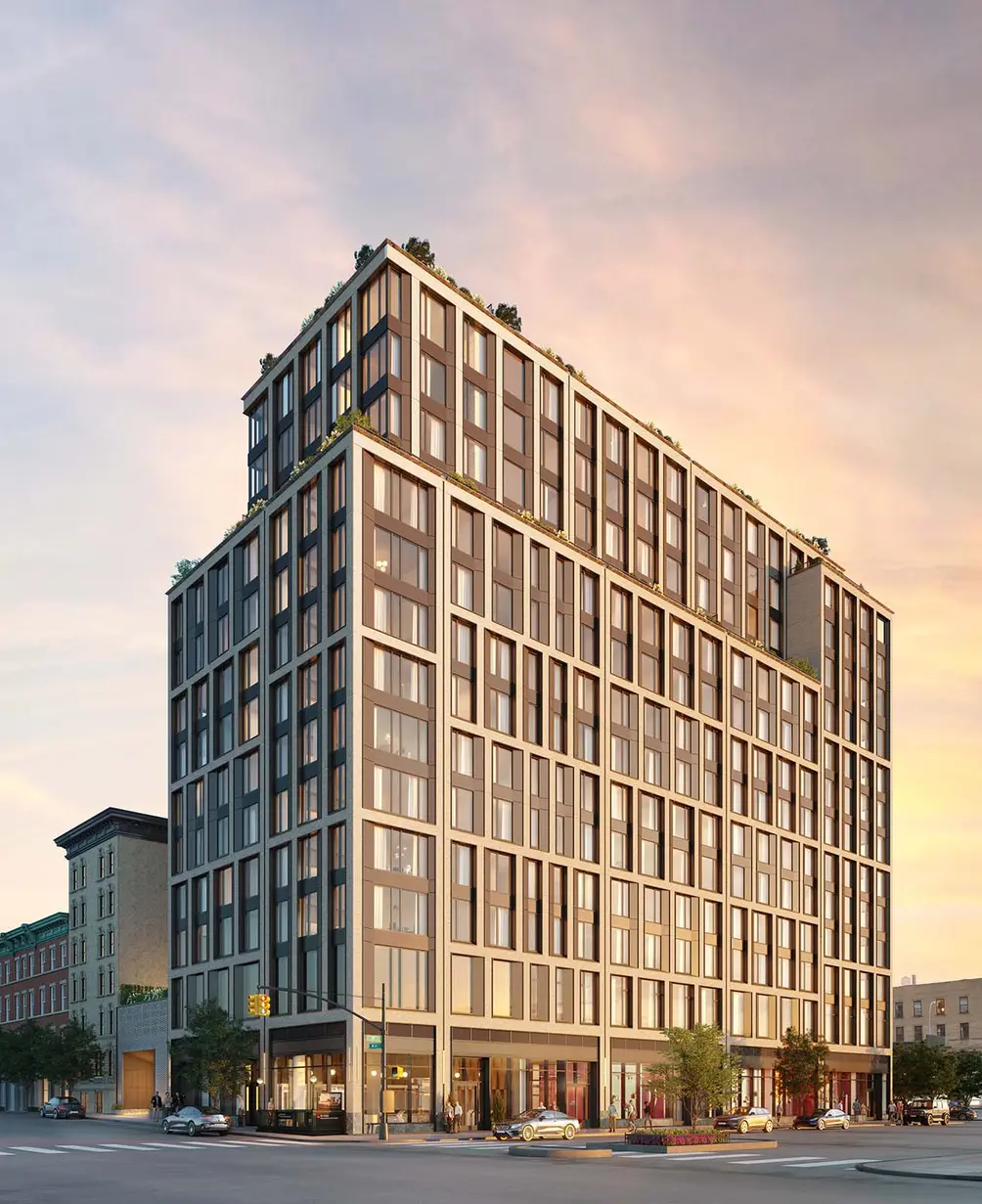 Chelsea Canvas (Redundant Pixel)
Chelsea Canvas (Redundant Pixel)
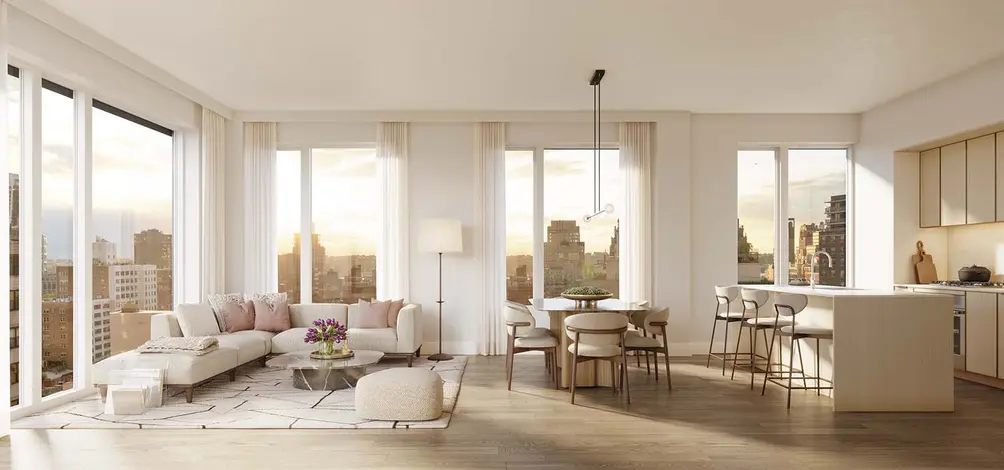

Located on Eighth Avenue and West 24th Street, Chelsea Canvas is a new full-block building near the Gallery District, the High Line, popular dining and nightlife, and public transportation. A portion of units were set aside for low-income seniors, and all interiors feature keyless entry, high ceilings, kitchens with Caesarstone countertops and integrated appliances, spa-like baths, and in-unit laundry. Residents arrive to a 24-hour attended lobby, and amenities include a fitness center, a children’s playroom, lounge/coworking spaces, a center courtyard, and a sun deck with grills and city views. To top it all off, a Target is set to open in the base of the building later this year.
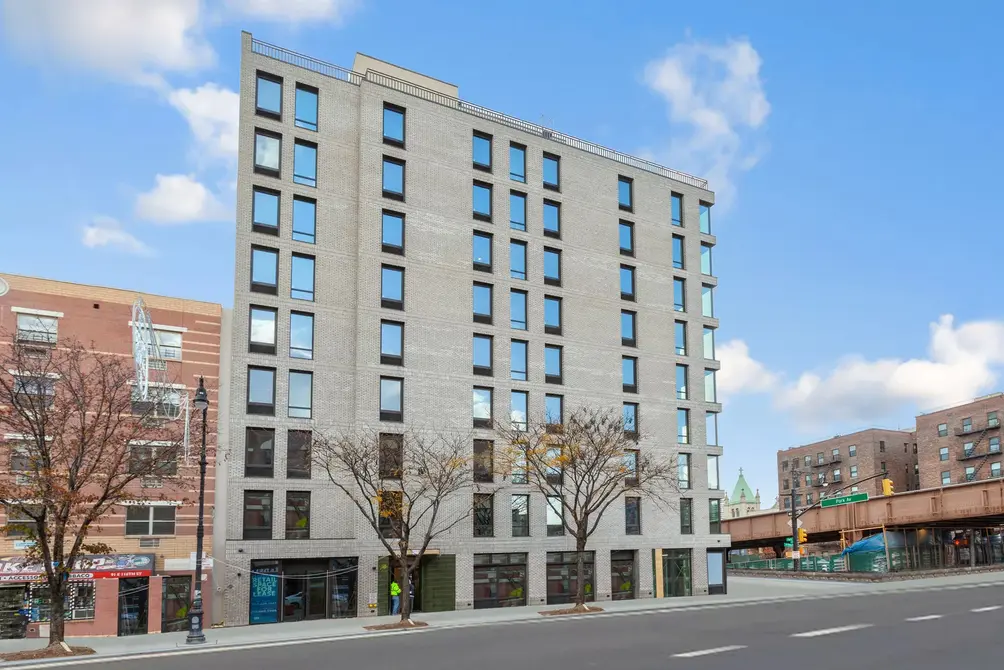 1638 Park Avenue (Elegran)
1638 Park Avenue (Elegran)
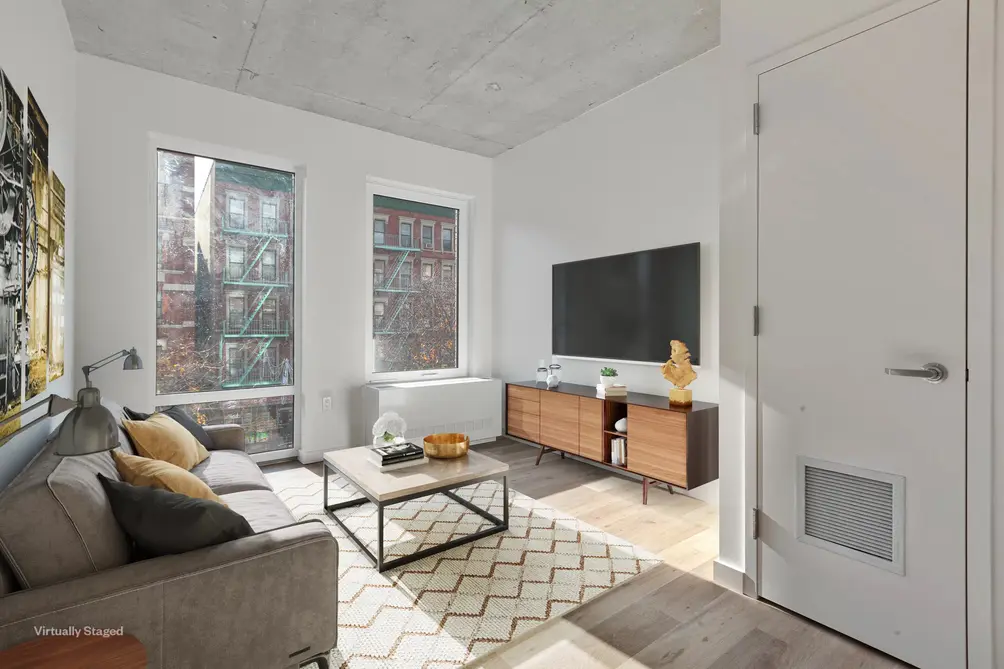
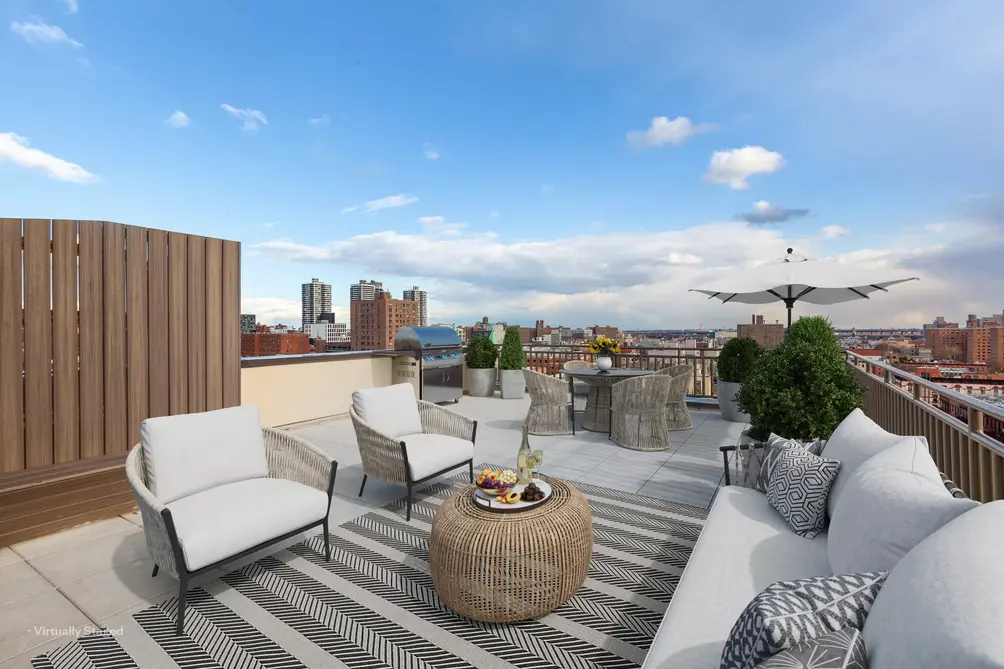
When the Second Avenue subway extension opens, it will do a number to alleviate the crowds at the 116th Street 6 train down the block from 1638 Park Avenue. Features like high-performance windows and low VOC paint were instrumental in its Green property certification, though this did not come at the expense of gourmet kitchens, central heating and air conditioning, and in-unit laundry. Amenities include virtual doorman service, storage cages, bike storage, and a roof terrace.
69 Adams Street
3 availabilities from $4,125
3 availabilities from $4,125
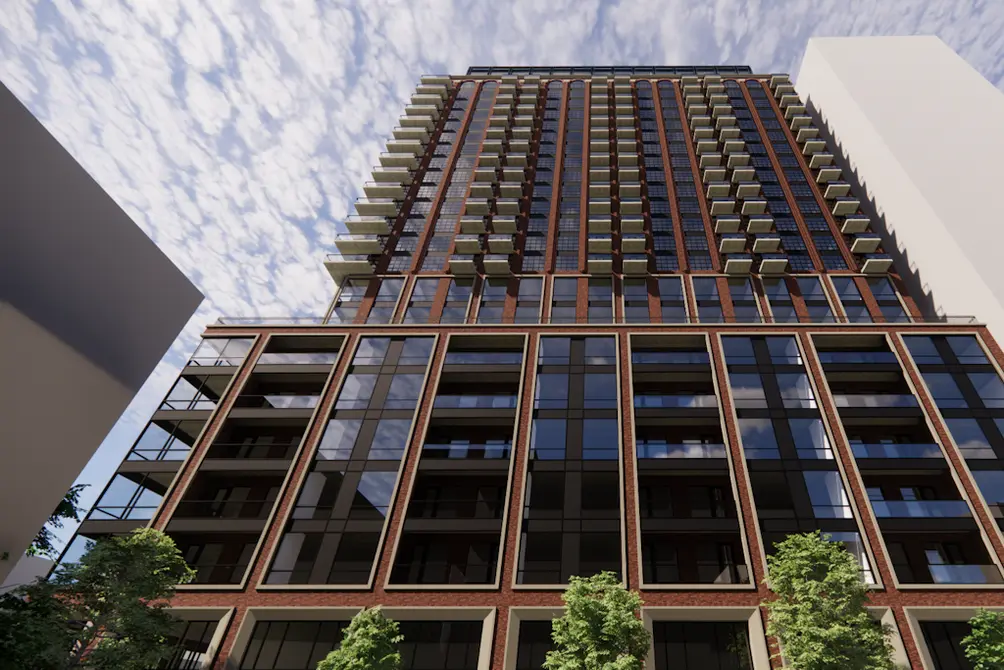 Bridgeview (EXR)
Bridgeview (EXR)
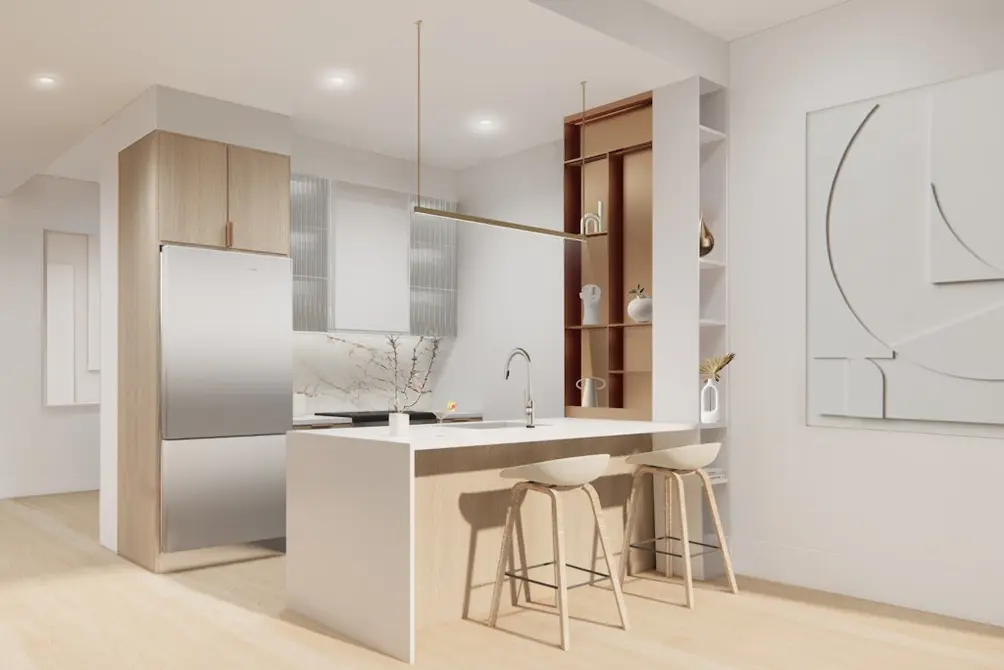

In the center of DUMBO, Bridgeview lives up to its name with the views from its oversized windows; interiors feature upscale finishes and generous closet space. The building rose on the former site of a Jehovah’s Witness building recreational building with a rooftop tennis court, and the new rental is equally rich in amenities with concierge service, a fitness center, a children’s playroom, a pet spa, a business center with coworking spaces, a screening room, and a roof terrace.
9 Dekalb Avenue
8 availabilities from $3,421
8 availabilities from $3,421
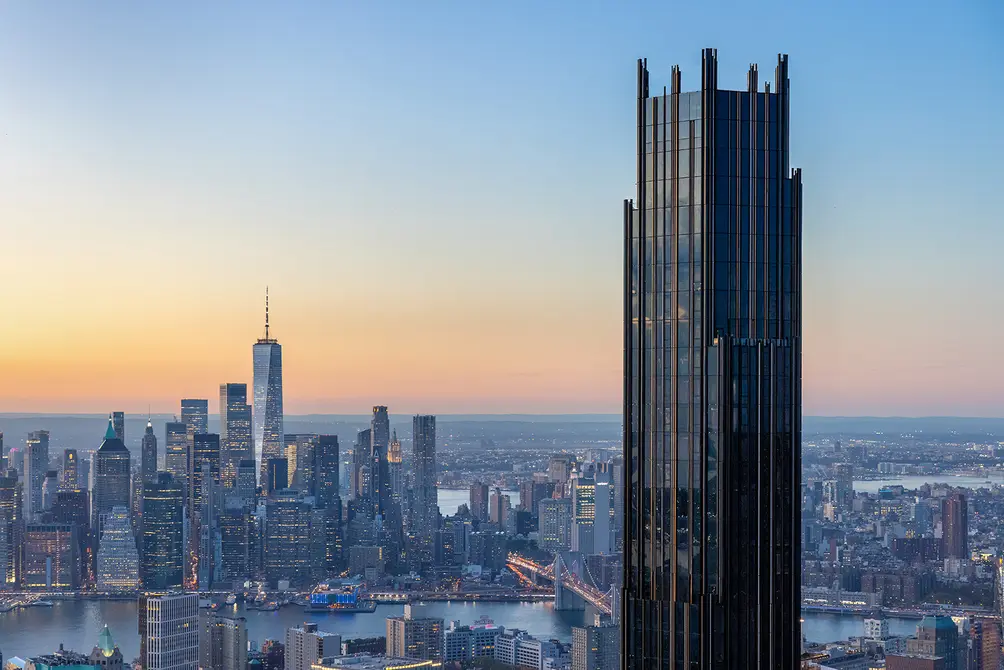 The Brooklyn Tower (Douglas Elliman)
The Brooklyn Tower (Douglas Elliman)
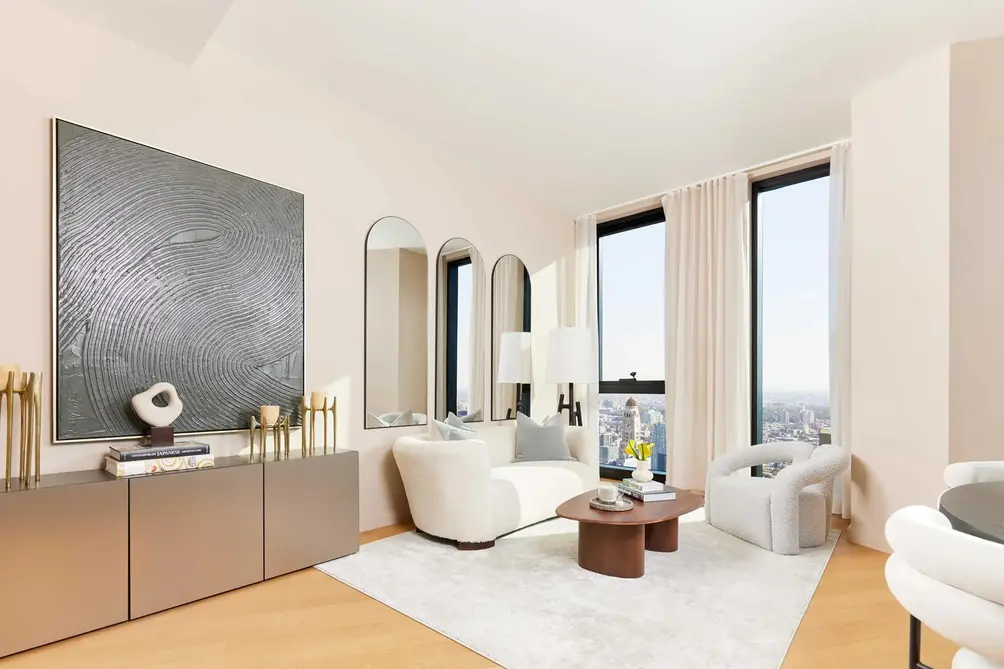
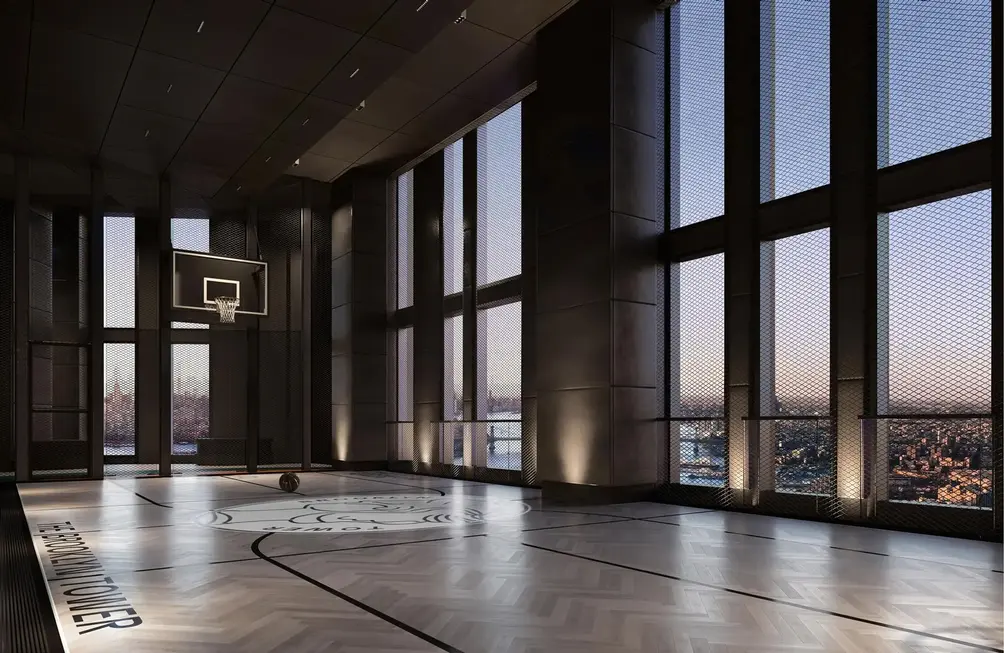
While located below The Brooklyn Tower’s condo units, the rental component of Brooklyn’s tallest tower nevertheless enjoys expansive views, high ceilings, floor-to-ceiling windows, and interiors by Gachot. Residents have access to an impressive amenity package that includes a Life Time Fitness outpost, indoor lap pool and whirlpool, poolside lounge by the Dime Savings Bank’s Guastavino dome, library lounge, screening room, and Sky Lounge with open air loggia, sports court, dog run, and playground.
5 South 5th Street
8 availabilities from $4,120
8 availabilities from $4,120
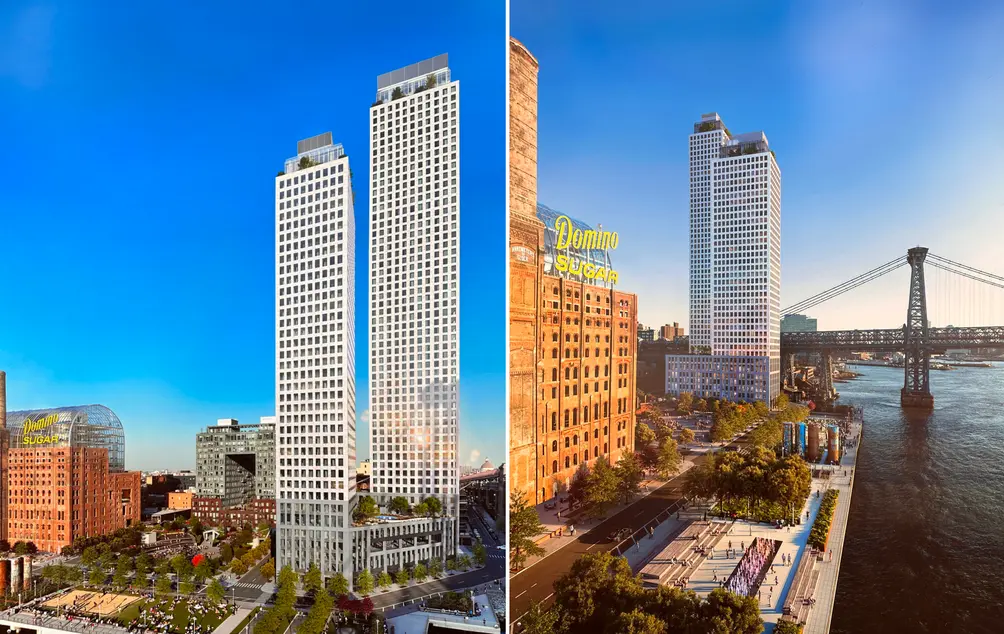 One Domino Square (Two Trees Management)
One Domino Square (Two Trees Management)

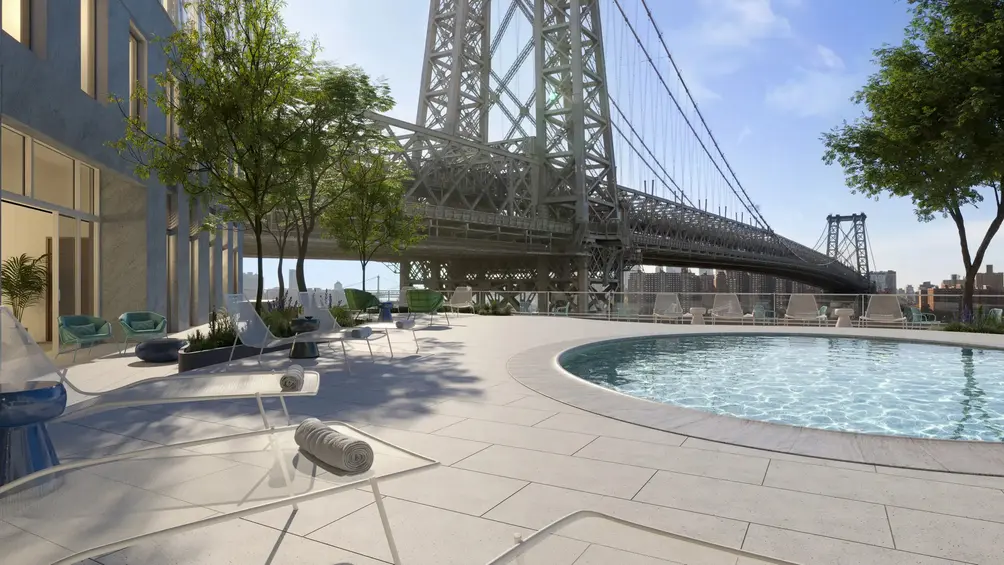
Leasing has launched at the rental component of One Domino Square, the twin-towered development near the Williamsburg Bridge in the transformed Domino Sugar Refinery site. The angle of the towers allows for spectacular river and skyline views, and interiors feature high-end finishes, Bosch appliances, smart thermostats, and in-unit laundry. A 45,000-square-foot amenity package includes a state-of-the-art health club, indoor lap pool, media room, game lounge, chef’s kitchen, children’s playroom, pet spa, and landscaped roof garden.
60 Wharf Drive
34 availabilities from $3,750
34 availabilities from $3,750
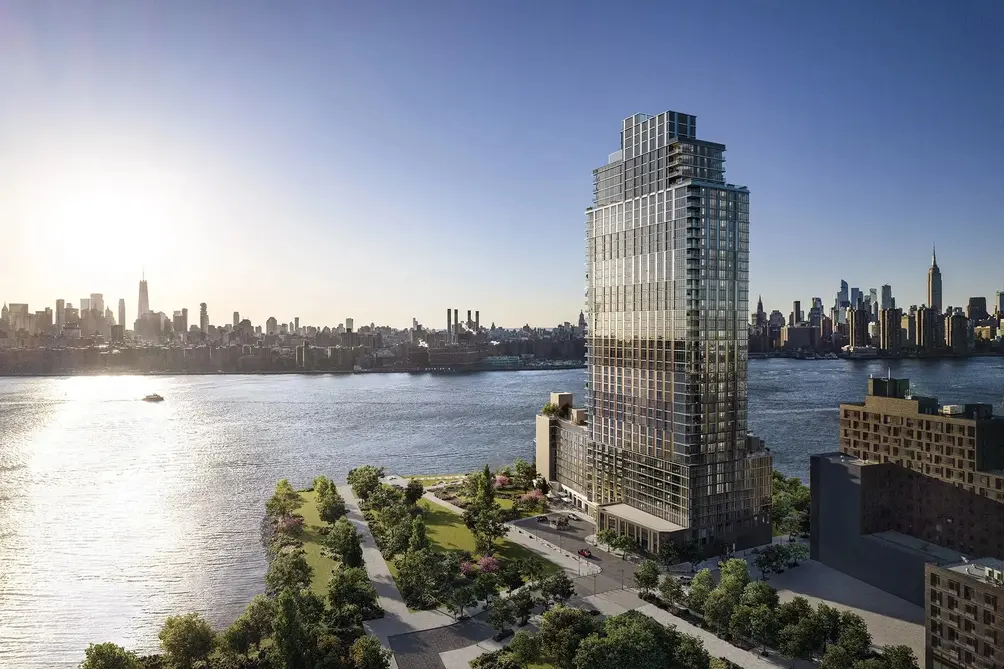 West Wharf (Halcyon Management Group)
West Wharf (Halcyon Management Group)


By virtue of West Wharf’s soaring height, residents enjoy dazzling views of the East River, the Manhattan skyline, and/or the Brooklyn cityscape through floor-to-ceiling Thermopane windows. Interiors feature high ceilings, white oak hardwood floors, central HVAC, and contemporary kitchens. The generous indoor amenity package includes an expansive business hub, two luxury screening rooms, a music room and recording studio, a state-of-the-art fitness center, two PGA golf simulators, an indoor basketball court, a spa area with a marble-lined hammam, a children's playroom, a teen game lounge, an indoor pool with children's wading pool, and rooftop deck with outdoor pool and Manhattan skyline views. The building is currently offering one month free rent on a 12-month lease.
30 Vernon Boulevard
21 availabilities from $3,157
21 availabilities from $3,157
 Astoria West (Corcoran New Development)
Astoria West (Corcoran New Development)
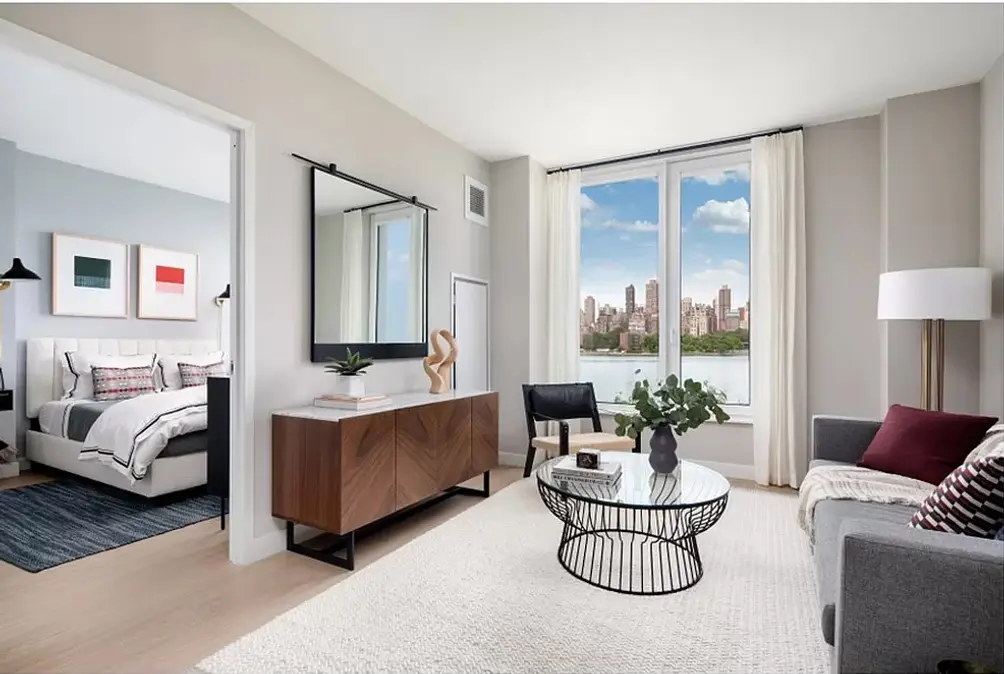
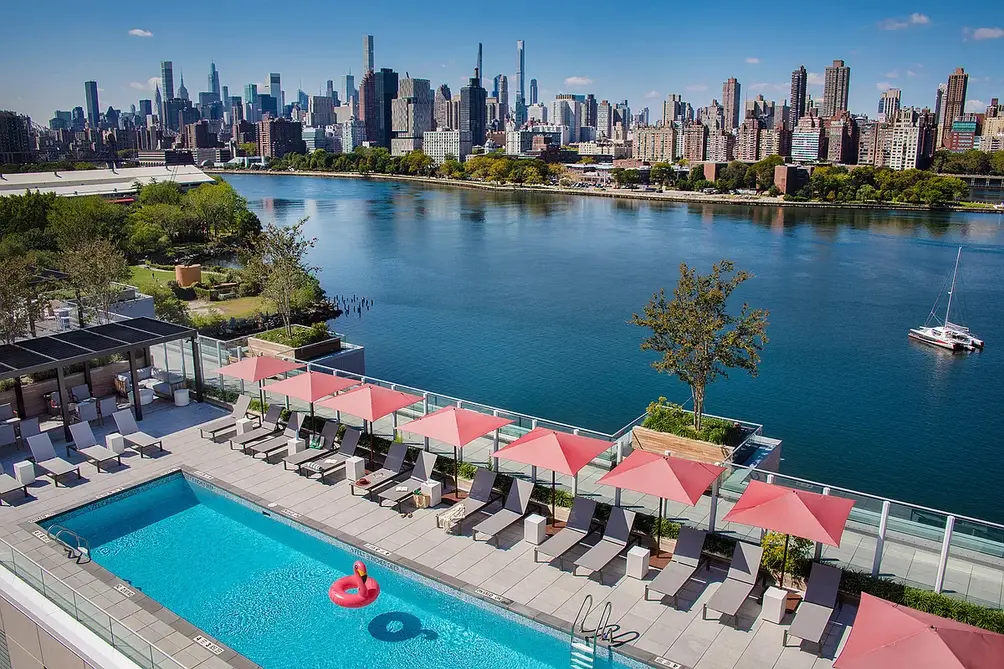
Long Island City rose to prominence thanks to amenity-rich rentals, but Astoria is seeing lower-rise new buildings. Among them is Astoria West, a three-building development catty-corner to the Socrates Sculpture Garden. All units feature high ceilings, generous floor plans, kitchens with quartz countertops and stainless steel appliances, well-appointed baths, and picturesque views. Residential amenities include an inner courtyard, a fitness center with yoga studio and golf simulator, a children’s playroom, a game room, and a rooftop pool club. The building also offers shuttle service to the subway, but the Astoria ferry is close by.
46-09 69th Street
5 availabilities from $2,160
5 availabilities from $2,160
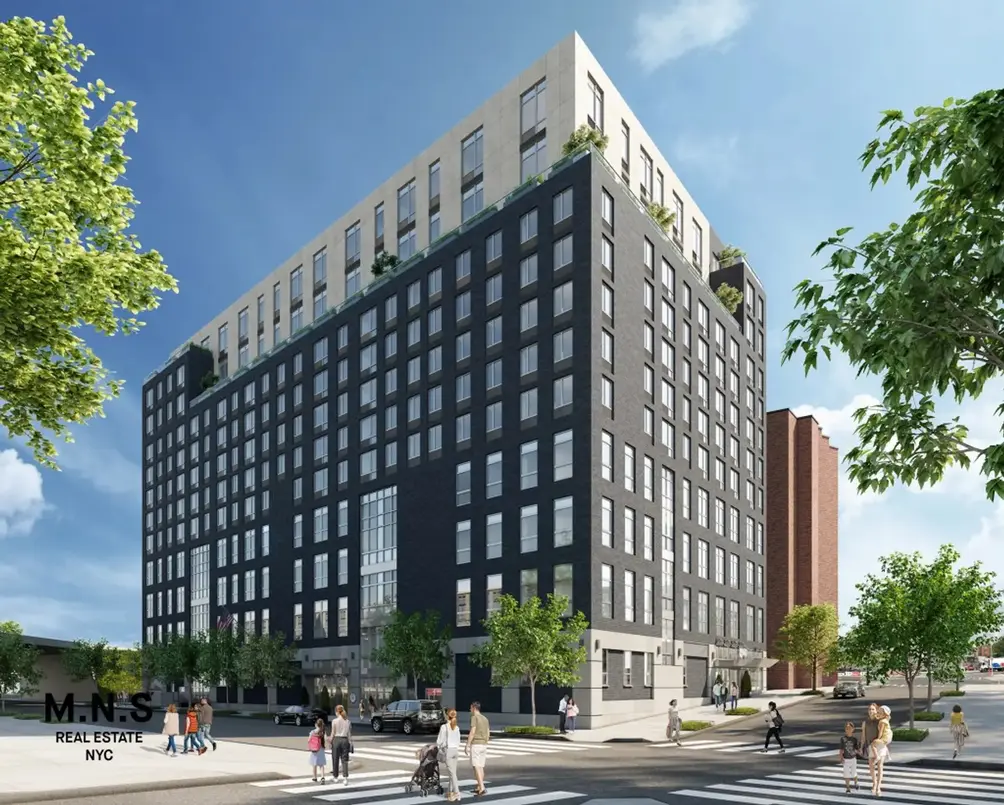 Woodside Central (MNS)
Woodside Central (MNS)
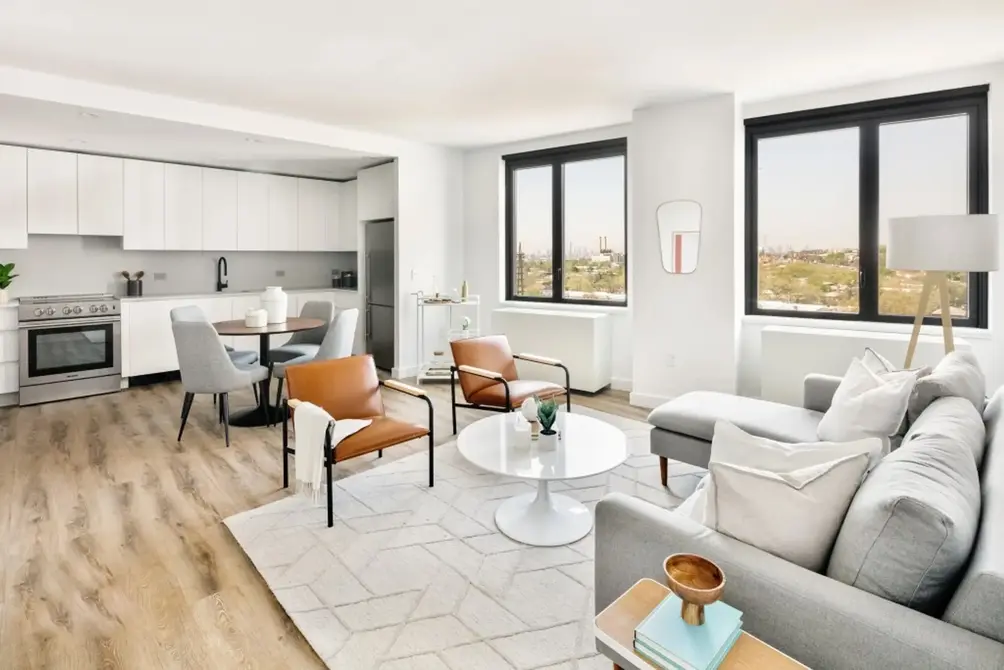

As Woodside Central shows, Queens’ rental building boom has extended beyond Long Island City and Astoria. All units feature oversized windows, desert sand wood flooring, chef-inspired kitchens with Blomberg appliances, spa-like bathrooms, generous storage, and in-unit laundry. Amenities like an attended lobby, a smart package room, a gym with yoga studio, a business center, a media lounge, personal and bike storage, parking, and a roof deck with BBQ grills allow for a comfortable, convenient lifestyle.
138 Bruckner Boulevard
6 availabilities from $3,100
6 availabilities from $3,100
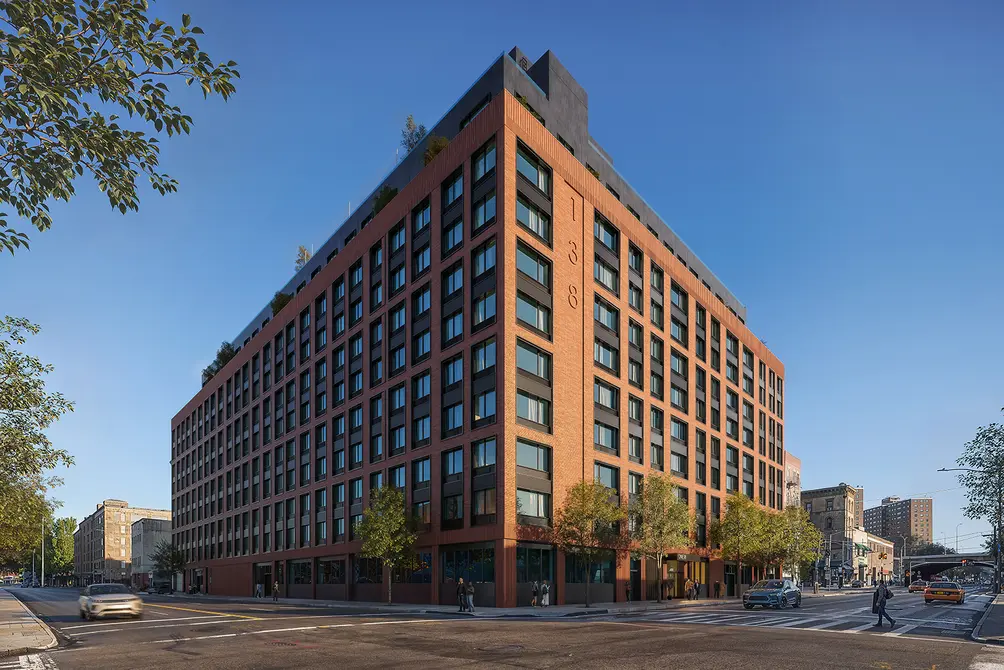 ONE38 (ONE38)
ONE38 (ONE38)


A fifteen-minute subway ride from Midtown Manhattan, leasing has launched and move-ins are about to begin at ONE38, a new rental in Mott Haven. All residences are reached via keyless entry and feature oversized windows, generous storage space, premium kitchen appliances, well-appointed baths, and in-unit laundry. A robust indoor-outdoor amenity package includes an interior garden, a rooftop terrace, a 5,000-square-foot fitness center, a multipurpose sports court, a game room, a screening room, a children’s playground, and the Bronx’s first Olympic-sized pool in a residential building.
270 Johnson Avenue
29 availabilities from $2,455
29 availabilities from $2,455
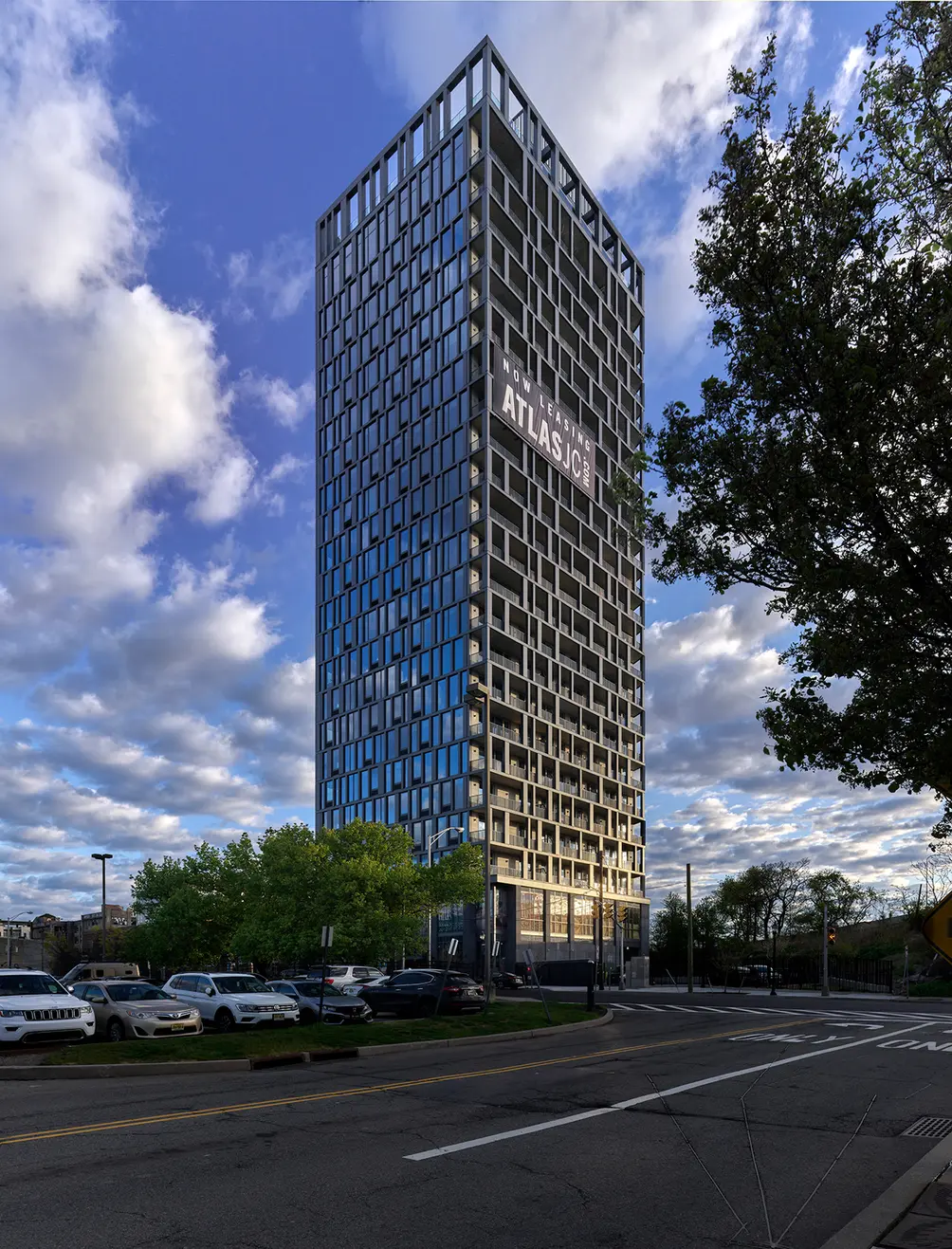 Atlas (Alpine Residential)
Atlas (Alpine Residential)

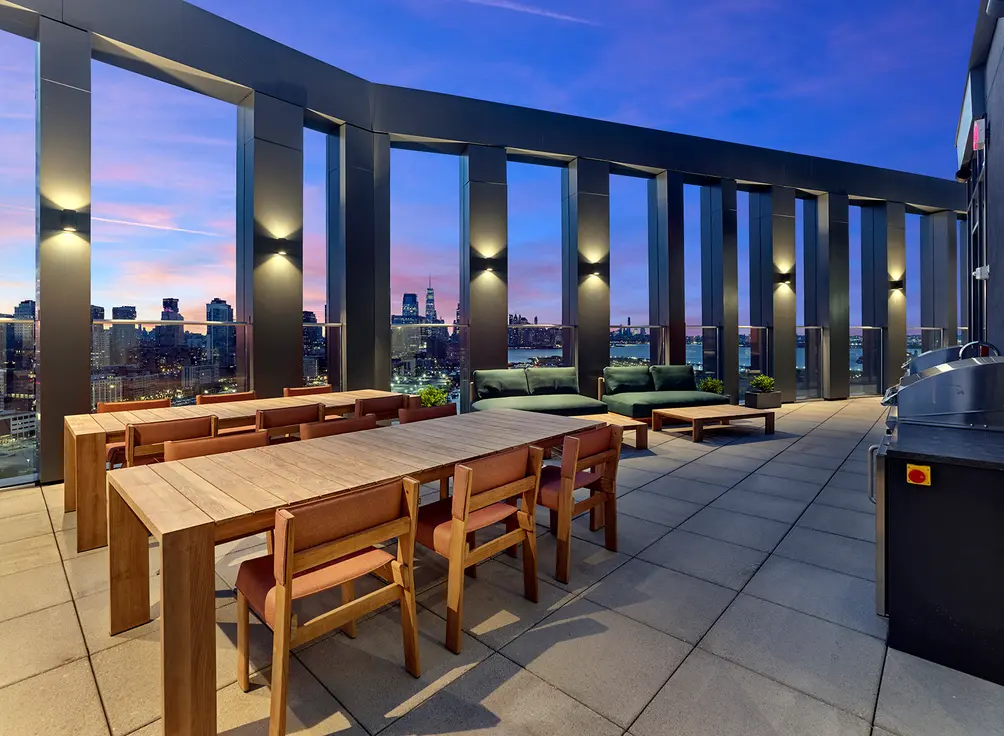
Across the river, Jersey City rental Atlas has recently surpassed the 50% leased mark a few months after opening at the beginning of the year. It is easy to see why – oversized windows in every unit overlook stunning views, and all interiors feature luxury plank flooring, custom closets, kitchens with quartz countertops and stainless steel appliances, well-appointed baths, remote thermostats, and in-unit laundry. An extensive amenity package includes a state-of-the-art fitness center, coworking spaces, a Sky Lounge, a game room, and a rooftop terrace with pool, grilling stations, and spectacular Manhattan skyline views.
{{error}}
More Rental Deals
- Leasing Updates View All
- Grand Opening View All
- Free Rent View All
-
Special Offers
-
Avalon Fort Greene offering discounts on select units; No-fee rentals from $2,845/month
-
Security Deposit Discounts at Beatrice Apartments in Chelsea; No Fee Rentals from $3,855/Month
-
East Harlem's The Heritage on Central Park: Renovated Rentals with Incentives from $2,595/Month
-


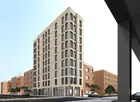

 6sqft delivers the latest on real estate, architecture, and design, straight from New York City.
6sqft delivers the latest on real estate, architecture, and design, straight from New York City.
